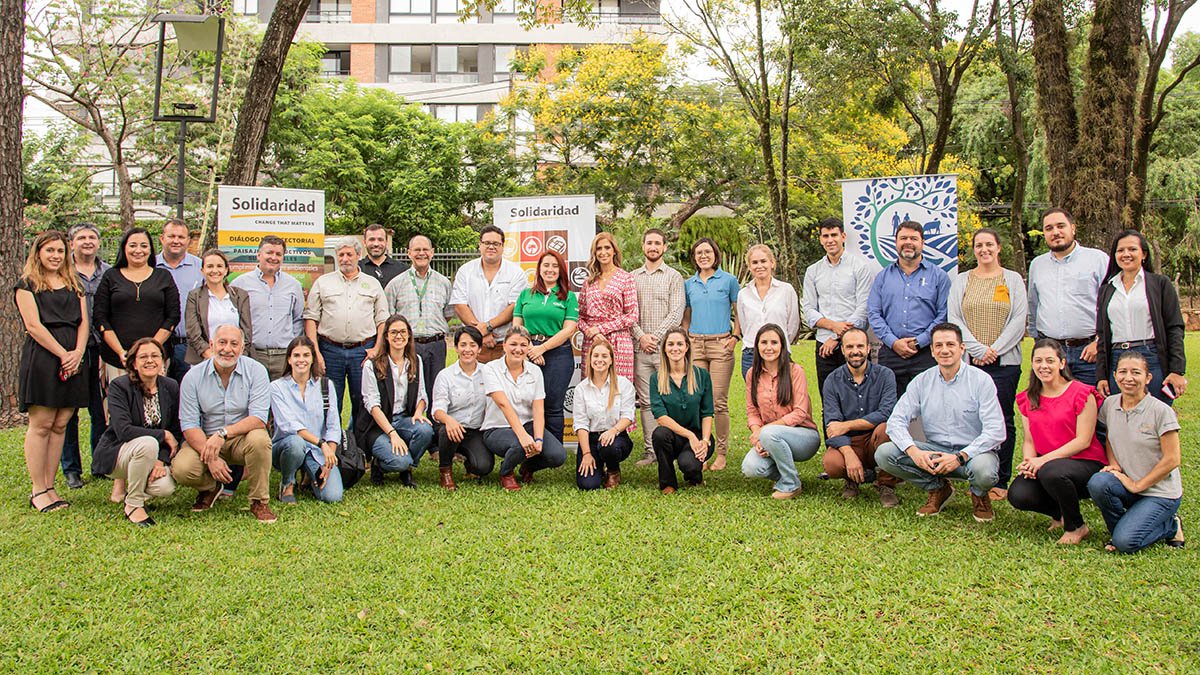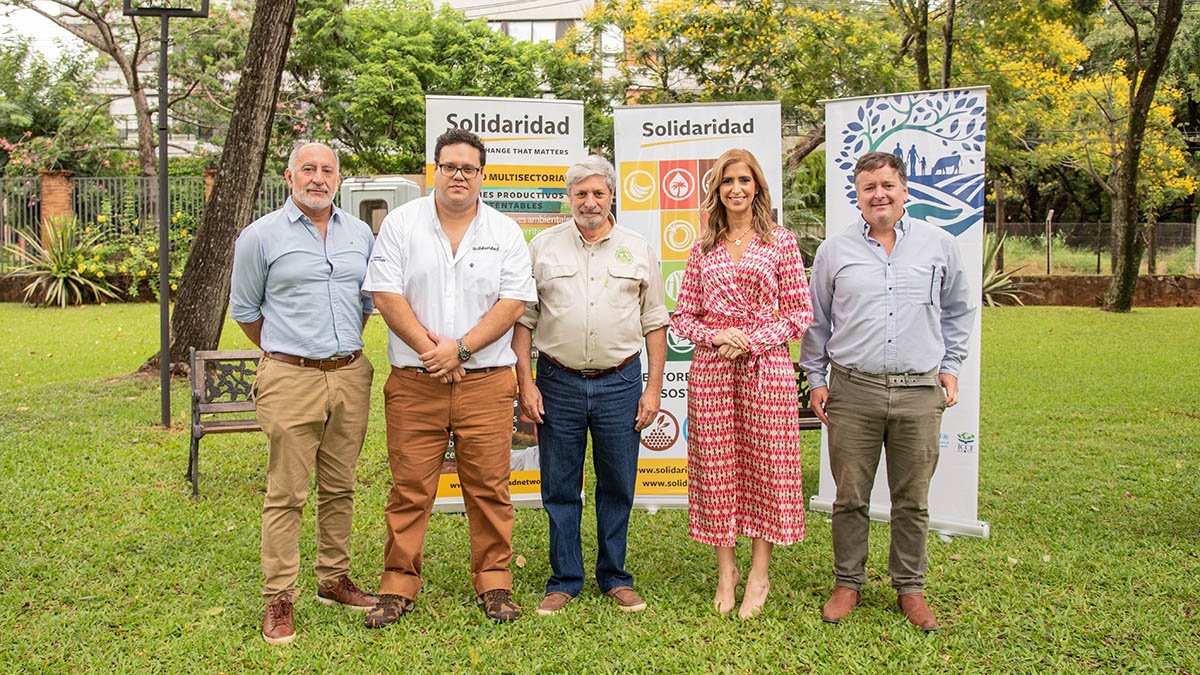Sustainable soy protocols for paraguay
Meeting organized by Solidaridad Latinoamericana discusses ways to develop sustainable agricultural in the Gran Chaco
A multi-sector event promoted by Solidaridad Latinoamericana with representatives of public and private sectors, civil society and universities discussed challenges and opportunities to develop a sustainable deforestation-free soy supply chain in the Gran Chaco. Held on March 16 in Asunción, Paraguay, the meeting was part of the "Sustainable soy in the Paraguayan and Bolivian Gran Chaco" project, an initiative by Solidaridad Latinoamerica supported by the Land Innovation Fund to design, develop, and deliver innovative technological and regulatory tools tailored to local needs, in dialogue with the international sustainability agenda.
Coordinated by APACS (Farmers' Association for a Sustainable Chaco), FOLUR (The Food Systems, Land Use and Restoration) and Solidaridad, the event presented general data on the country’s soy production and discussed the growing demand from international markets for traceability and data transparency in the agricultural commodities supply chain.
Participants included industry representatives such as Cargill, ADM, Bunge, Louis Dreyfus, the Paraguayan Chamber of Oilseed and Grain Processors (CAPPRO), and the Argentine Chamber of Edible Oilseeds (CIARA). The private sector was represented by Syngenta, Ucrop.it and Sistemas Electrónicos del Paraguay (SEPSA).
From civil society, there were representatives of the Tropical Forest Alliance (TFA) and Solidaridad. From the public sector, participants included members of the Ministry of the Environment (MADES) and the National Forestry Institute (INFONA) of Paraguay. Finally, the National University of Asunción’s School of Agricultural Sciences, the Sustainable Finance Roundtable, Innovative Finance for the Amazon, Cerrado and Chaco (IFACC) and the Ideagro Foundation were also represented.
Traceability, a challenge for sustainable soy
During the event, various organizations presented their projects and opened the way for intersectoral dialogue. Particularities of agricultural production in the Chaco were discussed as well as the challenge of traceability for agricultural commodities to ensure sales and compete on international markets.
"Soy in the Paraguayan Chaco is still an emerging crop, with growth potential. Its positive aspects include favoring crop rotation with livestock to recover degraded areas. As the Paraguayan soy chain is export-oriented, overseas demand for sustainable production will also be felt in the Chaco. More dialogue is still essential on minimum benchmarks to comply with market conditions," says Agustín Mascotena, Solidaridad's manager for Argentina and Paraguay.
Factors such as the US biodiesel law and the anti-deforestation bill now pending in the European Union promise more monitoring of agricultural production and increasing demands for traceability and certification of product origin. This means both farmers and traders must be better prepared to prove compliance with these requirements in several supply chains, including soy.
Yet public sources of information and coordination among sectors to generate and share integrated databases and control systems are still in short supply. "In this sense, we see a fundamental role the Land Innovation Fund to foster the emergence of an innovation landscape for sustainability, and to enable the development of technological, governance, and financial solutions favorable to deforestation-free agriculture with no conversion of native vegetation," says the Land Innovation Fund's director, Carlos E. Quintela.
Two initiatives to boost sustainable soy crops in the Chaco
One of the sustainable soy initiatives presented at the meeting to respond to these market demands in the Gran Chaco region was VISEC, a project being developed by CIARA, in partnership with Peterson Control Union and the Rosario Board of Trade and financed by the Land Innovation Fund. It offers a unified platform to monitor Argentina's soy supply chain, combining data from public and private systems, and to curb deforestation in the biome's priority conservation areas.
Another initiative presented at the event was the Food Systems, Land Use and Restoration Impact Program (FOLUR), sponsored by the United Nations Global Environment Facility (GEF), in partnership with Paraguay's Ministry of the Environment and Sustainable Development (Ministerio del Ambiente y Desarrollo Sostenible, MADES). The goal of the program is to promote the adoption of best practices in meat and soy production chains, to avoid deforestation and restore ecosystems. To achieve the goal, FOLUR is strengthening the MADES Environmental Information System (Sistema de Información Ambiental, SIAM) to include information on land use change permits, standards, and production guidelines. The project also plans to develop a meat and soy protocol, which is why it joined with Solidaridad to hold this roundtable, along with other joint efforts.


